Shipping Costs Rising in Select L.A. County ZIP Codes
🔍 Attention all using FedEx or UPS in L.A. County: Your shipping costs might be on the rise. Select ZIP codes in areas like Westlake, Koreatown, South L.A., Palmdale, and Lancaster are facing new delivery surcharges. Yes, even places usually not prone to extra fees like 90005, 90020, 90044, 90057, and 90748. It's worth doing a quick search to see if your area's included.
📈 Why the increase? It’s part of an annual review by these carriers. Interestingly, densely populated areas in L.A. are getting hit this time, not just the hard-to-reach spots. The cost hike varies - small items won't see a big difference, but larger or unique shipments could face up to a $30 surcharge. These changes vary based on package size, delivery method, and destination (commercial vs. residential). UPS has already implemented these changes, and FedEx follows suit by mid-April.
🔗 Read more at LAIST
Why This Matters:
Cost Management: These surcharges could dent your budget, especially if you ship to or operate in these ZIP codes. Time to review and possibly adjust your spending or explore other shipping options.
Customer Communication: Transparency is key if these costs are passed to customers. Clear information helps maintain trust and manage expectations.
Logistical Planning: You might need to rethink shipping routes or schedules to lessen these surcharges' impact.
Competitive Edge: This is an opportunity to look for more cost-effective shipping methods, possibly gaining an advantage over others who are more affected by these charges.
Our Hot Take:
This marks a significant shift in how carriers approach densely populated areas. It could signal a new trend where urban centers, not just remote locations, face extra charges due to higher delivery costs. A crucial moment for businesses to rethink their shipping strategies and consider alternatives beyond traditional carriers, adapting to a dynamic logistics landscape.
If you're using FedEx or UPS for shipping, especially in Los Angeles County, keep an eye on your bills – they're about to go up.
Caltrans and state fire officials had expressed concerns about the storage of combustible liquids on wooden pallets under Interstate 10 for several years before a recent fire, which is now being investigated as arson, led to the closure of a major Los Angeles freeway for over a week.
Los Angeles' Interstate 10, which had been closed for over a week due to an arson fire, reopened ahead of schedule.
A fire broke out under a Los Angeles freeway where 16 people, including a pregnant woman, were living.
A recent fire under an elevated Los Angeles freeway, which caused significant damage and traffic disruptions, has brought scrutiny to a state land leasing program that allowed businesses to store various materials under the freeway.
The fire-damaged section of the 10 Freeway in downtown Los Angeles won't require demolition, and some lanes are expected to reopen within 3-5 weeks, according to Governor Gavin Newsom.
Los Angeles city leaders convened to address a storage yard fire causing the closure of the I-10 Freeway, preparing for expected traffic disruptions.
The first significant storm of the season is set to hit Southern California midweek, bringing cooler temperatures and 1 to 2 inches of rain over multiple days, which is unusual for this time of year.
A rail service connecting California's San Joaquin Valley to the Port of Los Angeles is expected to commence operations in 2028.
Los Angeles International Airport (LAX) has chosen a consortium led by Realterm, the largest manager of on-airport air cargo real estate in North America, to undertake a revolutionary cargo improvement project.
The Port of Los Angeles experienced its fourth consecutive month of rising cargo volumes in June, reaching the highest level since July 2022.
California Governor Gavin Newsom has unveiled a comprehensive investment plan of over $1.5 billion to enhance the state's supply chain infrastructure.
The International Longshore Warehouse Union (ILWU) and the Pacific Maritime Association (PMA) have reached a six-year tentative deal, putting an end to the long-standing labor dispute at West Coast ports.
The West Coast ports are currently facing a labor dispute that has created confusion and uncertainty.
The Los Angeles Board of Harbor Commissioners has given its approval to a $2 billion annual budget for the Port of Los Angeles for the fiscal year 2023/2024.
Increasing vessel arrivals at the Port of Los Angeles and Long Beach have been impacted by labor slowdowns, causing disruptions in supply chain operations.
Container terminals at the Port of Los Angeles have reopened after work stoppages caused by labor disputes.
The Maritime and Port Authority of Singapore, Long Beach, and Los Angeles (along with support from C40 Cities) have signed a memorandum of understanding to establish a green and digital shipping corridor.
Last Thursday, a shortage of manpower prompted dockworkers to walk out, resulting in the closure of both West Coast ports.
While 41% of Americans were still working for home (with full-time or hybrid) in January, it’s safe to say that America’s biggest cities have faced a major shock to the system.
Los Angeles port director Gene Seroka is attempting to calm the waters after nearly a year of labor talks with the port workers union.
Dr. Martens is temporarily opening three warehouses in Los Angeles to assist with the flux of inbound shipments clogging its distribution center in Los Angeles, California.
China's economy is important for the Port of Los Angeles for a number of reasons.
The nation’s two largest ports, Los Angeles and Long Beach were home to 109 containerships queuing off the coast as recently as January of 2022.
San Pedro Bay, home of the Ports of Los Angeles and Long Beach, has long been the king of America’s oceanside ports.
According to recently released September data, the East Coast port of New York and New Jersey has earned the top spot for a second consecutive month.
The Port of Los Angeles Executive Director Gene Seroka is remaining confident that the ports will be able to reach an agreement with The International Longshore and Warehouse Union, regardless of how long it takes.
The federal government's RAISE (Rebuilding American Infrastructure with Sustainability and Equity) grant promises a four-lane, rail-roadway grade separation.
The majority of the cyber-attacks are originating from Russia and Europe as international adversaries attempt to disrupt the American economy.











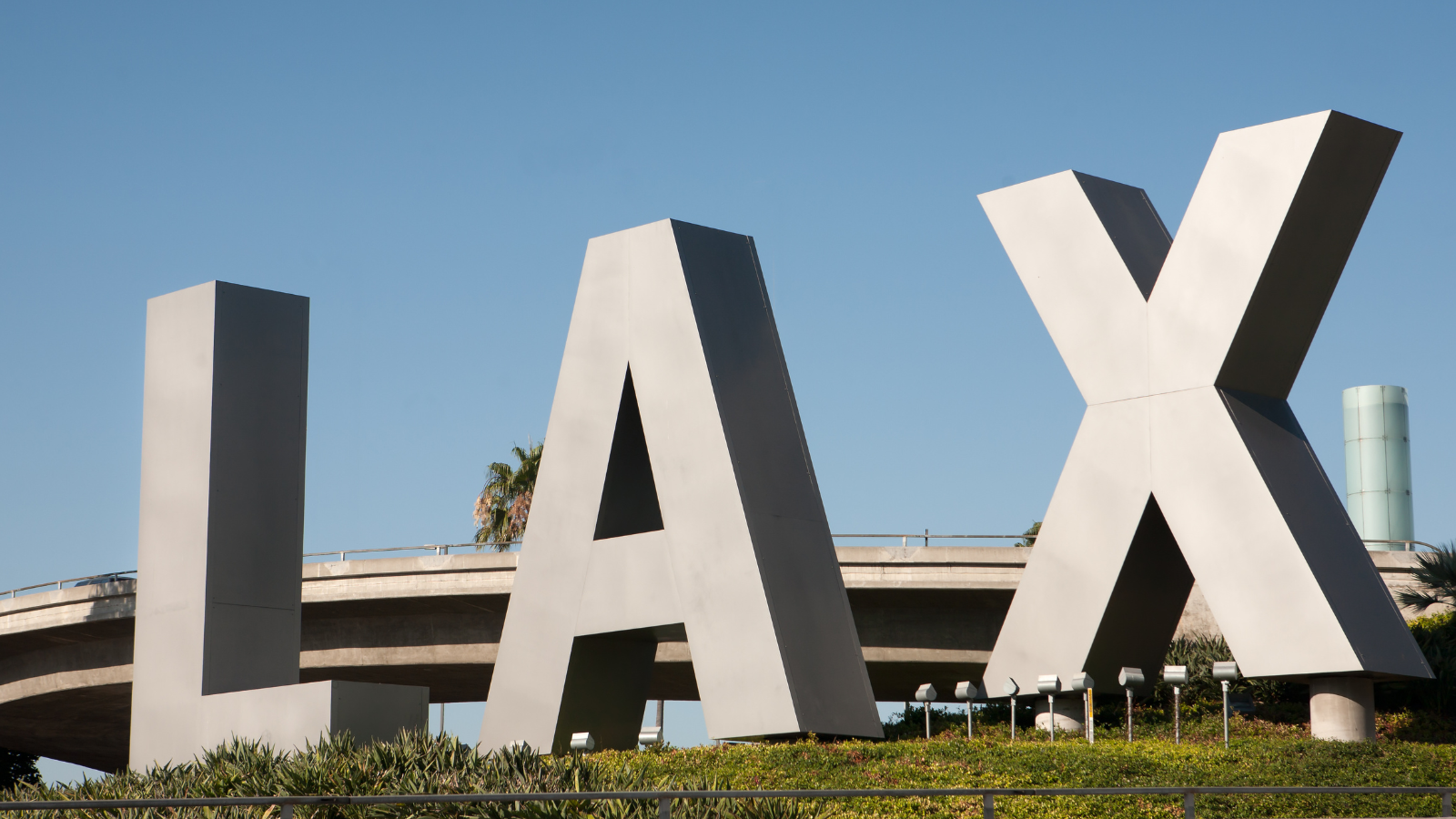













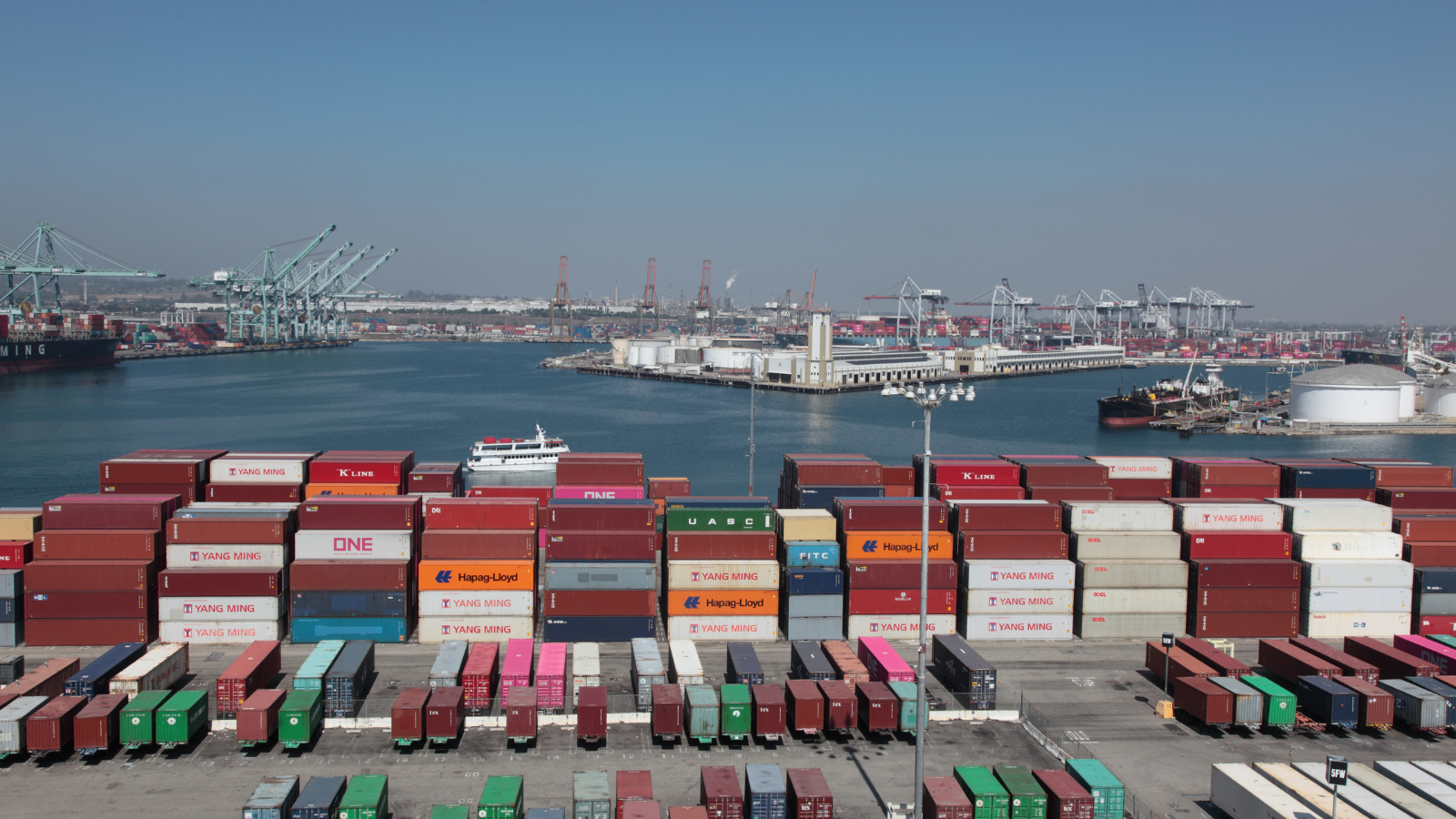
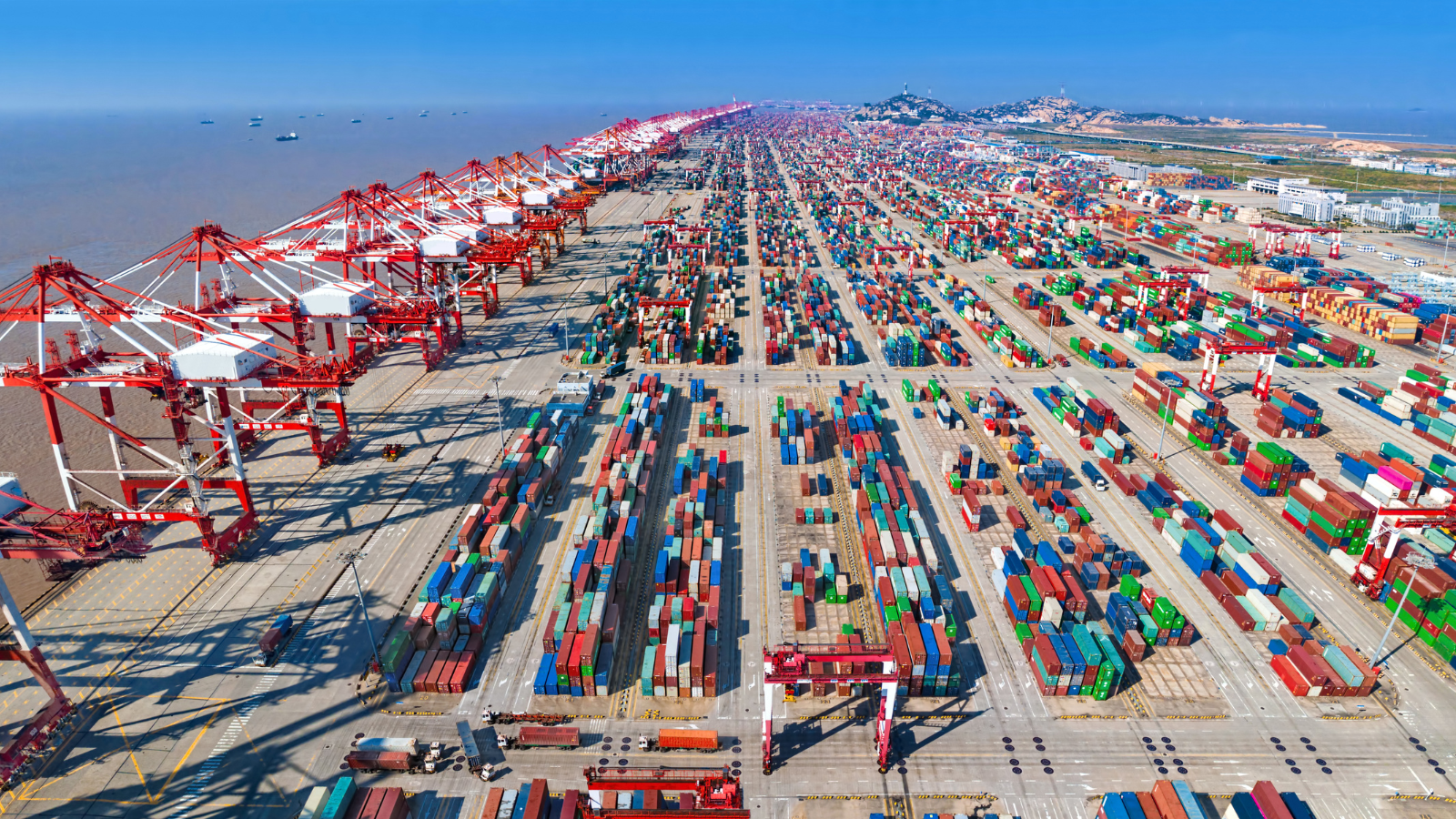

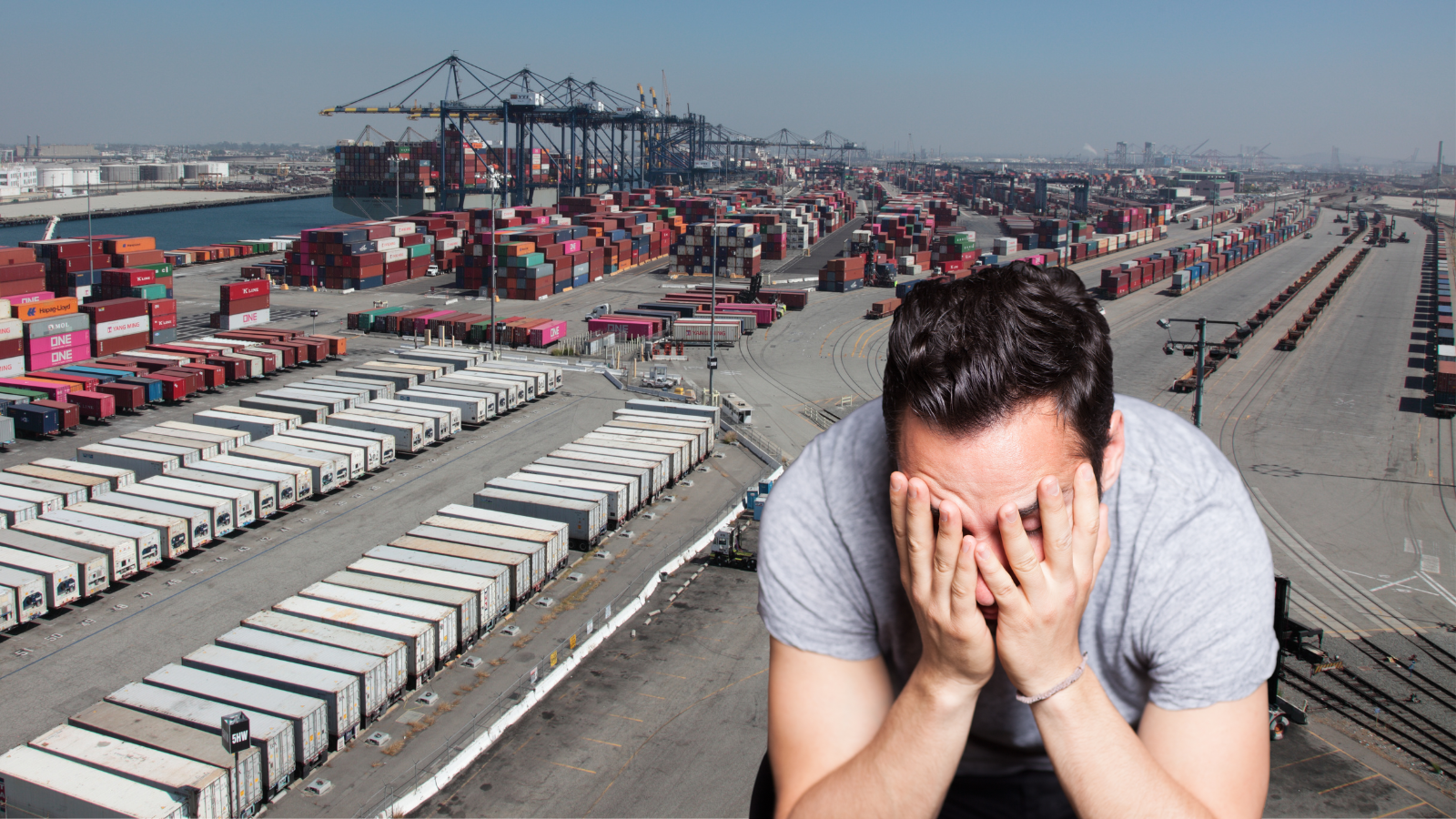
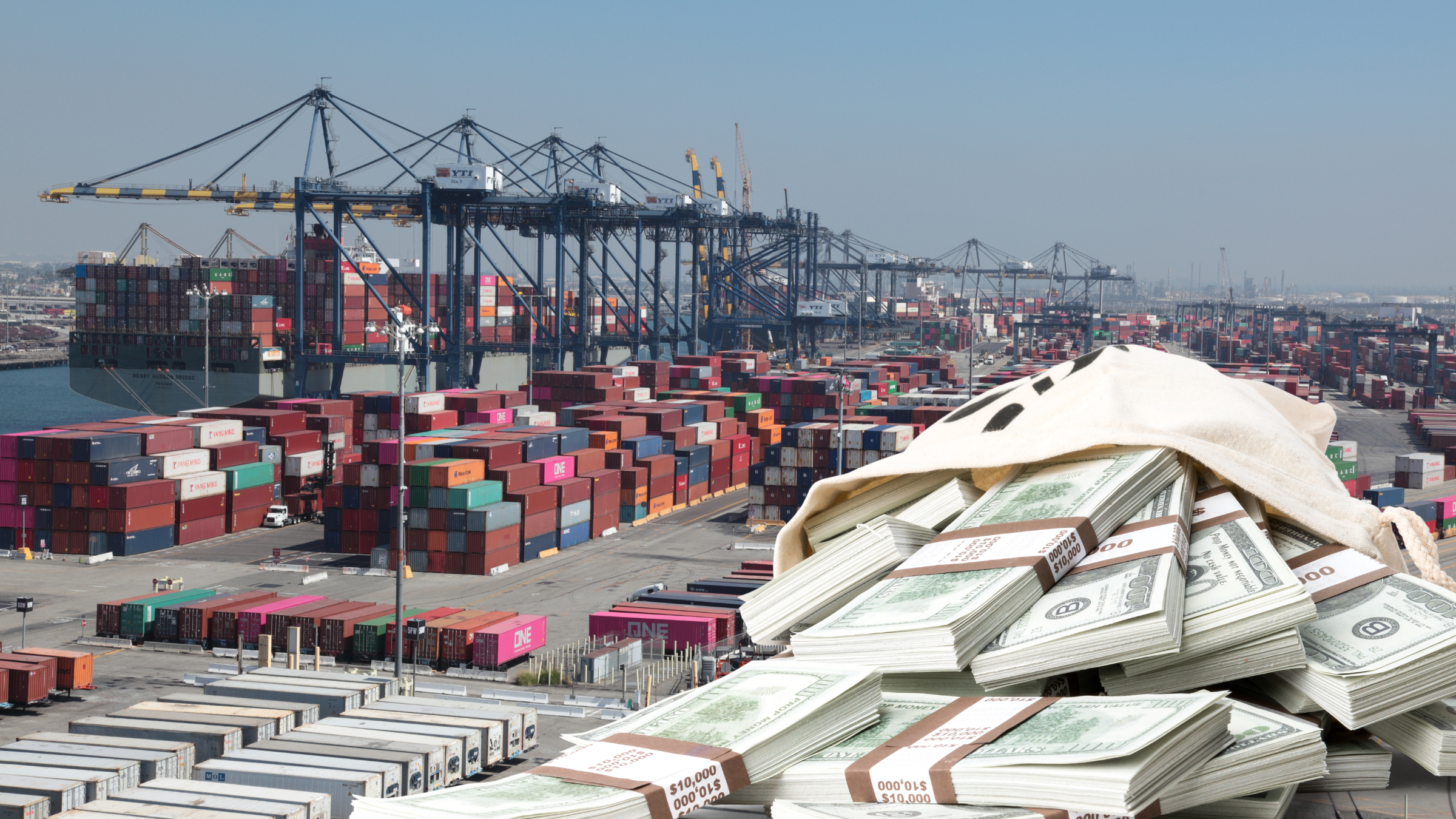

Los Angeles is reimagining about 3,229 acres near its harbors—connecting communities like San Pedro and Wilmington—to boost transit, pedestrian areas, and clean industrial uses, aiming for a healthier environment.